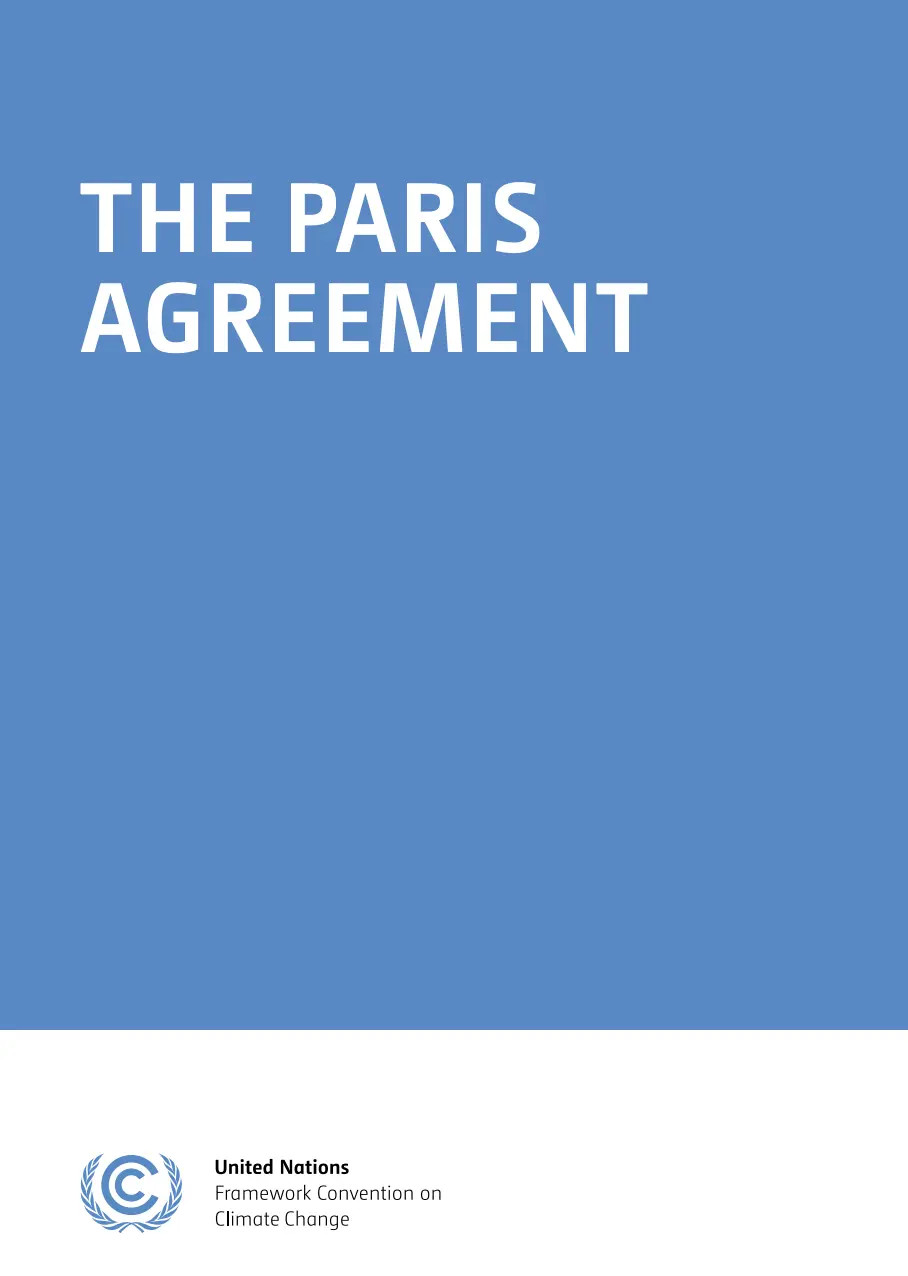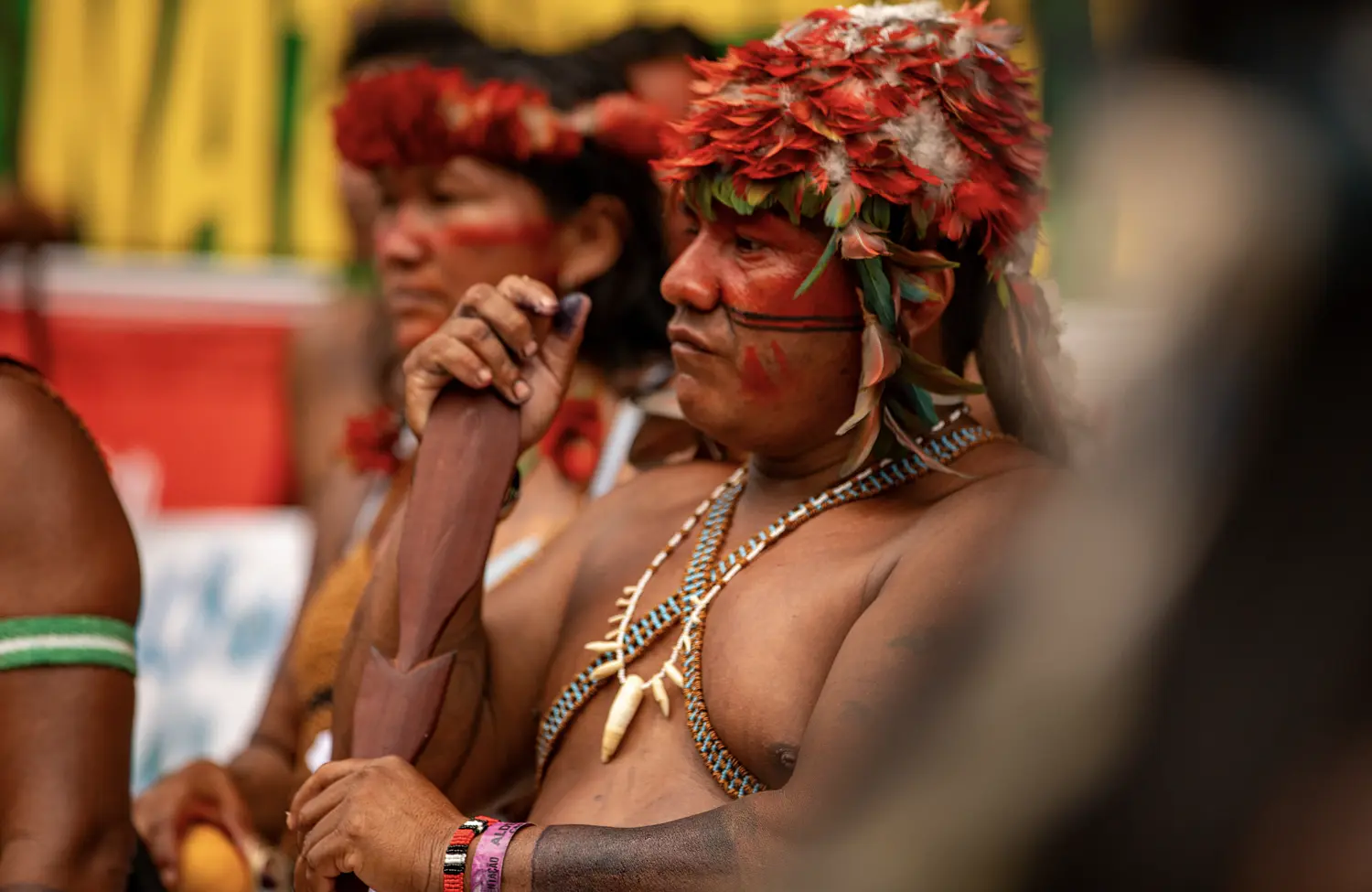The WWF is run at a local level by the following offices...
- WWF Global
- Adria
- Argentina
- Armenia
- AsiaPacific
- Australia
- Austria
- Azerbaijan
- Belgium
- Bhutan
- Bolivia
- Borneo
- Brazil
- Bulgaria
- Cambodia
- Cameroon
- Canada
- Caucasus
- Central African Republic
- Central America
- Central Asia
- Chile
- China
- Colombia
- Croatia
- Democratic Republic of the Congo
- Denmark
- Ecuador
- European Policy Office
- Finland
The world gathered for COP30 in Belém, Brazil, deep in the Amazon rainforest, ten years after the landmark Paris climate agreement was approved by 195 countries at COP21.
Countries have made commitments, but there is still a wide chasm between pledges and what science demands - let alone what is being implemented. These gaps are measured in lost lives, lost livelihoods, and lost time.
Progress has not been fast enough – we need to more and do it faster. The choices we make over the next five years will shape the planet for generations to come.
Time is running out, but we are not out of options. We know that emissions must decline by almost half compared to 2019 levels by 2030. We know what the main driver of climate change is. We know that the G20, being the world’s largest economies, are responsible for 85% of global emissions.
This existential threat to the world is not inevitable. It is a matter of choices. Solutions are within reach. We can choose to shift away from polluting fossil fuels, and scale up renewable energy, transform our food systems, and protect and restore nature, including halting deforestation.
Taking climate action now not only helps prevent the worst impacts of climate change, but it also builds healthier communities, stronger economies, and safer futures.
The global climate summit, COP30, in Belém, Brazil, promised much – but didn’t deliver the decisive steps the world urgently needs. Countries approved a set of modest actions but failed to secure agreements on the most crucial issues.
Following a year when global temperatures topped 1.5°C for a whole year for the first time, the formal talks concluded without a roadmap to transition away from fossil fuels – the single biggest cause of the climate crisis. And despite the summit being held against the backdrop of the Amazon rainforest, there was also no agreement on a roadmap to end deforestation by 2030.
The most significant formal decision was the approval of a just transition mechanism to strengthen international cooperation and support developing nations through the shift to renewable energy. The final Preamble also included welcome references to Indigenous Peoples, local communities, ocean, and science.
Read WWF's full reaction here: Small wins at COP30 but core climate goals stay out of reach | WWF
The WWF Pavillion
The WWF Pavilion at COP30 hosted a wide array of events on topics ranging from the much-needed phase-out of fossil fuels to food systems, finance - including carbon markets, forests and nature-based solutions.
WWF Pavilion COP30 Programme Schedule
Watch the recordings
Policy Resources
- WWF COP30 Expectations (version 2)
- A COP30 package on ending deforestation and ecosystem conversion (version 2)
- Phasing out fossil fuels - a policy brief
- A new approach to the Action Agenda
- How COP30 can define the future of Global Adaptation
- WWF Africa's climate mandate for COP30 (English)
- WWF Africa's climate mandate for COP30 (French)
- Policy guidance for addressing adaptation in agriculture and food systems
- WWF Climate and Energy manifesto - pivoting towards implementation
- WWF Response to the Climate High-Level Champions’ Call for Inputs
- WWF's Ocean-Climate 'asks' for COP30
- Loss and Damage essential for climate action in NDCs 3.0
- Phasing out fossil fuels through NDCs 3.0: Guidance for Policymakers
- WWF Expectations for COP30 - Climate action in challenging times - holding the line on 1.5°C
- A COP30 package on ending deforestation and ecosystem conversion (version 1)
- Proposal for a UNFCCC work programme on climate and nature
- Effectively delivering on climate and nature: NDCs, NAPs and NBSAPs synergies
- UNFCCC Draft Standard: Addressing non-permanence/reversals
- WWF Response to the Climate High Level Champions’ Call for Inputs
Submissions
- WWF submission 1st Global Dialogue of the Mitigation Work Programme
- WWF submission Sharm el-Sheikh joint work on implementation of climate action on agriculture, food security
- WWF submission Research Dialogue
- WWF submission Committee on Non-market Approaches under Art.6
- WWF Submission to the 5th Global Dialogue of the Mitigation Work Programme on Enabling Mitigation Solutions in the Forest Sector
- UNFCCC WWF Submission on the “Baku to Belém roadmap to 1.3T”
- WWF Submission on Cooperation with other international organizations
COP30 PAVILION PROGRAMME
Step into the heart of climate action at WWF's COP30 Pavilion.
Discover our online programme packed with must-attend events on groundbreaking topics, including finance for climate resilience, carbon solutions, climate and nature synergies, the energy transition, nature-based solutions, and the crucial phase-out of fossil fuels.
Whether you're joining us virtually or visiting in person, WWF's Pavilion is offering a wealth of inspiring sessions, expert insights, and innovative ideas to explore. Dive into the programme, mark your calendar, and join the journey to shape a sustainable future.
Link to the pavilion schedule HERE.
- Read more here
- The NDCs We Want Checklist
- Just Energy Transition in NDCs Checklist
- Phasing out fossil fuels through NDCs 3.0: Guidance for Policymakers
- NDC checklist for just energy transition
- Effectively delivering on climate and nature: NDCs, NAPs and NBSAPs synergies
- NDC Engagement made simple - a handbook for policy and advocacy experts
WWF has a number of experts available to provide commentary in multiple languages on topics ranging from what needs to happen at COP30 to deliver the energy transition to how to address the dual climate and nature crises.
To set up an interview with one of our experts, contact the WWF COP30 climate comms team: cop30-comms@wwfint.org



